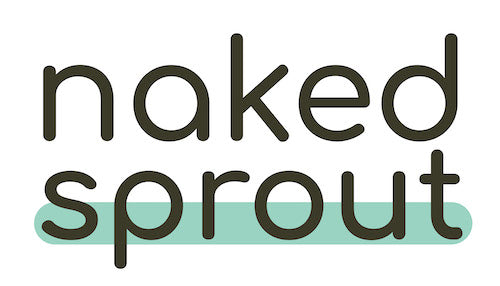Our LCA Part 4: Delivery

Welcome to part four of our series on our Life Cycle Assessment (LCA), unwrapping the obsessive detail that has gone into calculating our climate footprint at Naked Sprout.
In our previous pieces we have covered the scope of our LCA, the climate impact of our raw materials, and the groundbreaking manufacturing processes that make our products the most sustainable in the industry.
Today, we take our rolls to the end of the road, travelling from our factory in Spain all the way to your door.

Clearing the Decks
In part two of our LCA series we dealt with everything that comes into our factory; our raw materials and the emissions it takes to bring them to us. In this post, we’re thinking about everything that leaves our factory. Before we shift our rolls, we need to account for our waste.
We try to be as circular as we can at Naked Sprout. We don’t have seconds at our factory, because damaged boxes and wonky rolls go back into the mix for our recycled tissue. We even harvest the paper residue that comes when we clean the water we’ve used, and feed it back into our biomass furnace.
But we can’t use everything. The waste cardboard boxes that we collect for our recycled tissue will sometimes contain non-paper elements like bits of plastic or staples, wooden pallets break from time to time, and some of the raw materials we use have packaging that can’t be recycled.

We've already taken care to reduce this waste before it's created; by not transporting natural gas to our factory, not using bleach or dyes, not including extra wrapping on our boxes we've minimised the amount of packaging coming into our factory to make our rolls. But what is left at the end of the process still needs to be disposed of, and so we still count the emissions that come from this disposal.
That’s the bins sorted. Time to deliver some toilet rolls!
The Final Stretch
The science of logistics is not the most inspiring topic on the face of it, but it’s an absolutely critical part of human history, going right back to the invention of the wheel. Good supply lines have fostered the exchange of knowledge and culture, and enabled people to build settlements in the most remote regions on Earth.

Where the environment used to present challenges for logistics, logistics is now one of the main drivers of damage to our environment - approximately one quarter of all global CO2e emissions come from transportation. When customers ask us how our bamboo is transported, and how our toilet rolls come to the UK, they are checking to make sure we are taking these miles into account.
You can be assured we are. The last leg of the journey goes by road from the factory near Barcelona to Perpignan in the South of France, then by train from Perpignan to Calais, then across the Channel by boat to Dover, and then from Dover to Oldbury by lorry, where our products are handed over to DPD.
Delivering with DPD
At their hub in Oldbury, DPD sort our orders and add them to individual courier rounds, to be delivered on the familiar red, white, and green vans that come to your door.

So what’s the climate cost of these final miles?
We chose to deliver with DPD because of their portfolio of sustainability initiatives. We’re aligned with DPD on the importance of making changes right now, rather than just setting targets for the future. But there’s an area where we don’t quite agree, and it’s reflected in our CO2e emissions. That’s the issue of offsetting.
Offsetting
As we’ve covered, traditional methods of manufacturing everyday items are causing huge disruption to our climate. Many companies want to do better. But moving away from fossil fuels requires relentless attention to detail, creative thinking, and compromises. Even with the best will in the world, it can seem slow going.
In recent years more environmentally conscious brands have started to “offset” their climate debt by paying organisations to plant trees, or by supporting renewable energy projects, in the hope of zeroing the balance of their own climate footprint. As part of their wider portfolio of sustainability initiatives, DPD have their own offsetting program, you can find the details of their program here.

But the science of offsetting is being urgently called into question, and we’ve decided that it’s not going to be part of the picture for us at Naked Sprout. So, although DPD calculates and purchases an offset to cover the emissions that come with transporting our rolls, we can’t in good conscience count this in our figures. Even the emissions offset by DPD have been included in our total.
These delivery emissions make up 16% of our total CO2e, a decent chunk! But we think it’s important to focus on making straightforward reductions to emissions through actually changing processes, rather than investing in the more speculative calculations of offsetting.
Adding it up
That’s it for the last part of our process. In total 17.8% of the CO2e generated by every kg of our bamboo toilet rolls comes from this final stage of waste management and delivery.
And now the rolls are at your front door, part of the climate footprint of your own home.

In a way, this is the most important part. The reason we go to such lengths to reduce our emissions is so that we can say to customers that switching to Naked Sprout will make a genuine difference to their everyday climate footprint.
In our next post we’ll see how we stack up against the norm.
Want to meet our products at the end of their journey?




